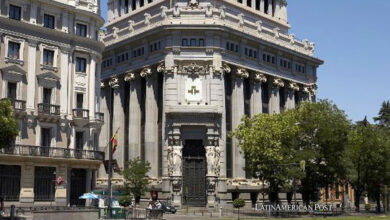Colombians deported from Venezuela: This is their double tragedy
War is one of the reasons that today has been living an odyssey to thousands of Colombians who were deported from Venezuela

The fighting between guerrillas, paramilitaries, and the National Army, forced more than 400,000 Colombians to cross the borders of the country to flee from war. Venezuela, during the first 12 years of the 21st century, became the great refuge for many families who were in the midst of bullets, extortion, threats, and all the other consequences caused by the armed conflict in Colombia.
Leer en español: Así es la doble tragedia que viven los colombianos expulsados de Venezuela
However, despite their situation, they had to live a second tragedy: to be deported to Colombia by the government of Nicolás Maduro. International and national media recorded how they crossed the river carrying what they could like mattresses, clothes, pots, and some mothers carrying their small children.
On September 4, the Historical Memory Center (CNMH) released the report entitled "Colombian Exile: Traces of the Armed Conflict Beyond Borders" which, among other topics, makes a study of Colombians deported in 2015, when the crisis broke out on the border between Colombia and Venezuela.
The investigation has, for example, the case of Ana Teresa Castillo, a community leader who had to travel five times within Colombian territory for threats from paramilitaries and guerrillas, until she decided to go to Venezuela in 2006. Later, she bought a house in San Antonio, which is passing the Simón Bolívar international bridge, which was subsequently demolished. She remembers that "there was plenty of food, it was the perfect life, there were not as many problems as today" and that people treated her very well.
When Maduro ordered the mass expulsion of all Colombians living in Venezuela, Ana Teresa Catillo says that "the deportation was very hard. Women were told they were prostitutes, men were accused of being paramilitaries. She was not able to clarify she was a refugee escaping from the war in Colombia.
The Historical Memory Center, in its report, remembers when 10 years ago Colombia was ranked third in the world as one the countries with the largest number of people who have sought refuge in other nations. Afghanistan occupied the first place and Iraq the second. "Since then, although Colombia has lowered some places in the ranks, it continues to occupy the first place in Latin America."
"The exile would represent the second victimizing event with the largest number of people affected, after internal forced displacement, and together, they would account for the panorama of the Colombian forced migration crisis, both internal and external," says the CNMH study pointing to exile as a factor that Colombia has faced for many years.
Also read: Why did Peru and Colombia agree to create a database of Venezuelan migrants?
"We want to rescue the memories of the exiles, of their own voices. We have never asked them what it meant for them to cross the border, what their life was like", says Randolf Laverde, researcher of the CNMH report. "Most people want to participate in this historical moment that is being lived in Colombia, they want to be part of this process of peace building", explains the researcher, referring to the exiled Colombians left for Venezuela, but they had to return.
The tragedy of Maduro's deportations
For many of the Colombians who escaped to Venezuela, and who are part of that exile community that has also fled to other countries, "the invasion neighborhoods" where they lived, the hospitality and solidarity that was born along with the other compatriots who shared their the same condition and, above all, the houses they built there, meant "the symbol of the new life" because they had "built them after months of work with improvised materials such as canvas, block, zinc tiles, and recycled wood", highlights the CNMH report.
In Venezuela, they lived with two fears: returning to Colombia and reliving the war and being deported by the authorities, something that the economic and social crisis caused by the Chavist model made them live.
The People's Liberation Operations (OLP, in Spanish), launched by Maduro, was directed against the "Colombian paramilitarism" in 2015. However, it ended in arbitrary inspections, intimidation, looting, and demolitions against Colombians. The "symbol of new life", their houses, had been destroyed. According to the CNMH, 2,000 people were deported and 22,000 returned to Colombia carrying their things on their backs.
At present, the report recounts, some Colombians returned to Venezuela to see what they could recover from the houses they built with so much effort, others have been forced to suffer the hardships that millions of Venezuelans live in several Latin American countries.
LatinAmerican Post | Edwin Guerrero
Translated from “Así es la doble tragedia que viven los colombianos expulsados de Venezuela”





